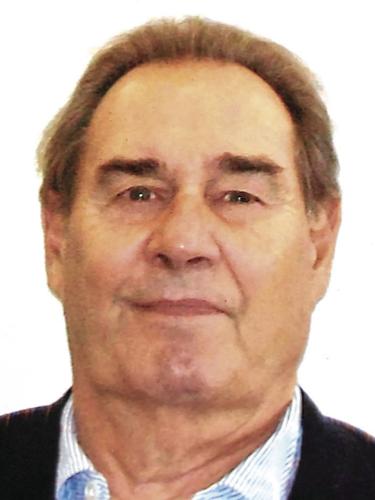Job-seekers in Jefferson County and neighboring areas have more resources at hand than they may realize, starting with a number of local staffing services – and a branch of state government.
The state helps thousands of job-seekers every year through a network of Missouri Job Centers, including one in Arnold. It’s operated by the newly reorganized Department of Higher Education and Workforce Development.
The center, 3675 W. Outer Road, Suite 102, is open 8 a.m. to 4:30 p.m. Monday through Thursday and 9 a.m. to 4:30 p.m. Friday.
“We’re trying to help as many as we can, always,” said Tom Whitehead, a supervisor at the center. “We have many different services here that we offer for the unemployed and underemployed. And we even can help people who are employed full time, if they’re looking to change careers or change to a new company. We can provide the same services to them.”
The online gateway to the center’s services is the jobs.mo.gov website, where job-seekers can register to post their resume, search for jobs and access education and skill-building opportunities.
They can also use a tool called Talify Missouri that can match job-seekers – based on a detailed personal profile – with employers looking for qualified workers.
Hands-on help
The Job Center provides computers, fax machines, copiers and telephones for job-seekers, who can also attend live workshops in career exploration, networking, resume preparation, the interview process and basic computer skills.
The most important services, however, are delivered one-on-one. The center employs 13 employment specialists who help individuals with resume writing, skills assessment, education and job-certification programs, job searches and job matching.
Of the 13 specialists, four work under contract with MERS Missouri Goodwill Industries to place workers under the federal Workforce Innovation and Opportunity Act, which provides free education and training programs to qualify individuals for available jobs.
Of the other nine specialists, one is an employer service representative working directly with employers to find qualified job candidates. Three other specialists are dedicated to helping veterans, including disabled vets through the Disabled Veteran Outreach Program.
There’s also a trade representative assigned specifically to help people who have lost their jobs through global competition. The federal program set up to help these displaced workers was instrumental in helping hundreds of people laid off when the Chrysler plant in Fenton closed in 2009.
The four other specialists serve the general population of job-seekers, or “customers” as the Job Center calls them.
“And I back them (the specialists) up, so I’m able to see customers and work with them, too,” Whitehead said. “And everything we offer here is free.”
Job Center supervisor
knows how it feels
Whitehead can empathize with people looking for work. He started working for the state in workforce development in 2006, was laid off during the recession in 2010 and later got rehired.
“I was out (of work) about two years,” he said. “I’m in my late 50s (then) and it was a shock; (the state) said, ‘We have to cut staff.’ But you have to move on, and so I did.
“I can understand when I sit with customers and they tell me, ‘I’m in my 50s and I don’t want to retire, (or) I can’t retire, and what am I going to do?’ I have that empathy with them because I’ve been there.”
He has two messages for job-seekers today: there are plenty of jobs available, and people should never give up trying to find the right job.
“In today’s economy, the employers need people, but there are so many people (already) working right now. (But) if you want a job – we’re not talking about a particular career, we’re talking about a job – you can get a job. We have employers saying to us, ‘I need workers.’
“The employers are reducing some of their criteria that they’re looking for,” he added, such as requiring less experience or accepting experience in place of a degree.
“The job-seekers need to be aware that (they should) never give up. There’s always an opportunity for them to find a job out there.”
Good place to work
An essential element of finding a good job is determining who the best employers are in a given field of work. For that, job-seekers get a helping hand from Westaff, a national employment agency with an office in Fenton, 916 Brookwood Center, as well as offices in Creve Coeur and Union.
“I look for companies that are good to work with,” said Greg Hill, the franchisee for all three St. Louis-area Westaff offices. “People want to work for companies where they have realistic expectations, where they’re good to work with, where they allow us to pay a reasonable wage, and they have good working conditions. So I’m more focused on the quality of the company and what they do, how they operate.”
Hill said he has a number of employers who he’s worked with for more than 20 years; he started with Westaff in 1992. “They have to be really good companies and good people, or I wouldn’t have been with them that long – if it weren’t mutually a good situation,” he said.
Westaff does what Hill called “behavioral interviewing” of job-seekers rather than the standard candidate questionnaire.
“We try to understand the person, where they would fit best, whether we can or can’t work with them,” he said. “We need to know their background. Some people are not employable and we just have to stay away from them.”
Applicants have to pass a drug screen, but won’t necessarily be turned away if they had previous problems with drugs.
“We’re very willing to work with some folks, depending on their background,” Hill said. “Say somebody had a drug violation 15 years ago, or 10 years ago, and it’s a one-off. Give the guy a second chance. We are trying to help people, not screen them out.”
Once Westaff places a person in a job, after 80 hours that worker can take free online courses through the company’s Better WorkLife Academy.
“(It includes) topics like basic math, blueprint reading, electrical/manufacturing skills and general business courses,” Hill said. “As long as you’re working for us you can take as many courses as you like. We have quite a few people who take these courses. It enhances their skills and makes them more valuable to the employer they’re looking at.”
Hill said pay rates are going up across all areas of business because of the severe shortage of qualified workers.
“Money talks,” he said. “If you’re looking for opportunities right now, it’s a good time to look. There are more openings in the workforce than there are people looking right now. It’s never been this way before. In my entire career, I don’t think I’ve seen it this difficult to find people.”
What sets apart his company from other staffing services, he added, is their careful, thorough process for vetting job candidates.
“What I hear from my customers is, you guys do a great job taking your time and selecting the right people and getting them to me,” he said. “We take a little more time and try to do it right. (It’s) a little harder up front, but in the long term it pays off.
“That’s our reputation and I’m proud of it.”
Taking the Express lane
Scott Moorman, who with his wife, Diane, owns Express Employment Professionals in Arnold, sees opportunity on both sides of the table.
He describes his company, one of 800 franchises worldwide, as a “full-staffing service,” matching potential employees with quality positions in a myriad of fields.
“We do professional placements, maybe for a civil engineer, for example. Or maybe it could be a receptionist’s position, or for a bookkeeper or an office manager, and labor, too.”
Under the company’s business model, job applicants are evaluated, interviewed and skill-tested. Then they are hired by Express Employment Professionals and placed in a job. If it turns out to be a good match on both sides and the job-seeker is hired permanently, Moorman said his company steps out of the picture. A match has been made.
Since 2012, the Moormans’ company has served more than 325 business clients and placed more than 3,000 associates (employees), Moorman said. It serves Jefferson County, part of St. Louis County and the Chesterfield area.
Job applicants do not pay a fee; Express charges businesses an hourly rate for an employee’s work until a job becomes a permanent placement.
Moorman said his own job is rewarding.
“We want to make a difference in people’s lives,” he said. “That’s our corporate and community commitment.”
Name-brand help
One of the biggest and best-known staffing services in the world is Manpower, which started in 1948 and has maintained a presence in Jefferson County for decades.
Manpower has had an office in Festus since 1994, said Linda Ragsdale, who has worked for Manpower for 21 years and manages the office.
Ragsdale said 50-60 percent of its business is the traditional temp-to-hire, a model that continues to work well, especially in manufacturing and other trades.
She added that Manpower provides free educational and training programs, including testing for the General Educational Development (GED) certificate and online college courses through the University of Phoenix.
“(The programs) are all free to people on a job assignment,” she said. “(Offering the college courses) just started a few years ago and we have already had one person graduate with their bachelor’s degree.”
Ragsdale said her office helped “quite a few” of the roughly 100 employees who were laid off from two area businesses this year. “We have four or five people we were able to place at a company in Pevely who have just excelled.”
She offers straightforward advice to today’s job-seekers.
“Concentrate on your skills and your attitude,” she said. “If someone has a can-do attitude, the willingness to learn, and can be reliable, they will go far,” she said.


